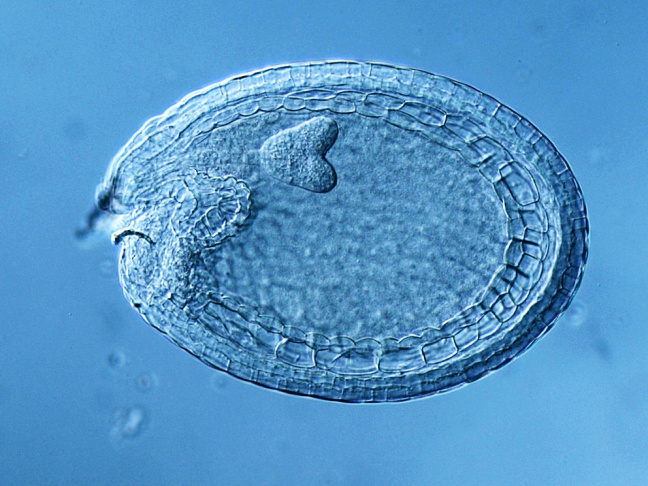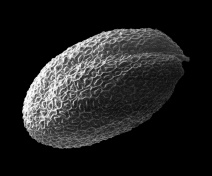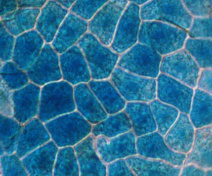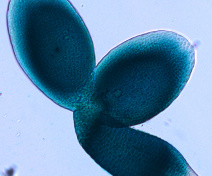Sebastien Baud is CNRS Research Director, member of SEED-DREAM, responsible for the SEED LIPID research topic
Career path
After my training as an Agronomist Engineer at the Institut National Agronomique Paris-Grignon (now AgroParisTech), I did my PhD thesis in the Seed Biology Laboratory at INRA Versailles (2000-2003). I completed my training with a post-doctorate (2004-2005) at the Centre for Novel Agricultural Products of the University of York (UK). I was recruited as a researcher by the CNRS in 2006, and since then I have been working at the Institut Jean-Pierre Bourgin for Plant Sciences (IJPB), in the SEED-DREAM team, where I lead a research theme on the metabolism of fatty acids in oilseeds. Since 2015, I am CNRS Research Director.
Scientific interests
The research project I am leading is based on the study of fatty acid metabolism in oilseeds. Seeds are key elements in the life cycle of flowering plants. They allow plants to interrupt their life cycle momentarily to face unfavorable environmental conditions (e.g. winter period). But they are also adapted to the dissemination of both wild (for the conquest of new territories) and cultivated species (they are the most common vector of propagation used in our agricultural practices). To fulfill their functions, seeds accumulate a large quantity of carbon and nitrogen compounds that are mobilized by the young seedling just after germination. Among the different types of existing carbon reserves (starch, reserve lipids), lipids are likely to provide more energy when they are remobilized. This is why a large number of plant species, known as oleaginous, accumulate triacylglycerols, made of fatty acids acylated on a glycerol backbone, during seed development. My collaborators and I study the biodiversity of fatty acids stored in seeds, their biosynthetic pathways and their regulation. We are using seed collections of various origins for this purpose. The species Arabidopsis thaliana remains our preferred model for genetic approaches and the study of the regulation of lipid metabolism.
Socio-economic interests
This fundamental research takes place in a socio-economic context in which oils of plant origin represent a strategic issue whose importance continues to grow.
- This is firstly explained by the strong demand for vegetable oils for human nutrition, which has grown exponentially over the past half century. This trend is explained by a sustained world population growth on the one hand, and by the significant changes in diets observed in different regions of the world on the other. Similarly, questions related to the impact of the fatty acid composition of dietary oils on human health have never been more important.
- Because the fatty acids in vegetable oils are carbon chains whose structure is relatively comparable to that of fossil hydrocarbons, these oils can also be used for the production of biofuels.
- Some fatty acids present in vegetable oils display particular chemical functionalities that make them particularly suitable for synthetic chemistry (for the production of lubricants, varnishes, paints, plastics). Although the share of vegetable oils used for 'green chemistry' remains limited, the sectors concerned are gradually gaining in importance because they offer sustainable alternatives to petrochemical derivatives.
- From an agronomic point of view, the composition of vegetable oils is likely to have an impact on seed physiology (e.g. loss of viability of seeds during ageing linked to lipid oxidation, germinative vigour under suboptimal environmental conditions influenced by fatty acid composition), and consequently on agricultural yields. These aspects are also essential to take into account for the preservation of biodiversity when it relies on the constitution and maintenance of seed banks, as shown by many initiatives around the world.
Socio-economic interests
This fundamental research takes place in a socio-economic context in which oils of plant origin represent a strategic issue whose importance continues to grow.
- This is firstly explained by the strong demand for vegetable oils for human nutrition, which has grown exponentially over the past half century. This trend is explained by a sustained world population growth on the one hand, and by the significant changes in diets observed in different regions of the world on the other. Similarly, questions related to the impact of the fatty acid composition of dietary oils on human health have never been more important.
- Because the fatty acids in vegetable oils are carbon chains whose structure is relatively comparable to that of fossil hydrocarbons, these oils can also be used for the production of biofuels.
- Some fatty acids present in vegetable oils display particular chemical functionalities that make them particularly suitable for synthetic chemistry (for the production of lubricants, varnishes, paints, plastics). Although the share of vegetable oils used for 'green chemistry' remains limited, the sectors concerned are gradually gaining in importance because they offer sustainable alternatives to petrochemical derivatives.
- From an agronomic point of view, the composition of vegetable oils is likely to have an impact on seed physiology (e.g. loss of viability of seeds during ageing linked to lipid oxidation, germinative vigour under suboptimal environmental conditions influenced by fatty acid composition), and consequently on agricultural yields. These aspects are also essential to take into account for the preservation of biodiversity when it relies on the constitution and maintenance of seed banks, as shown by many initiatives around the world.
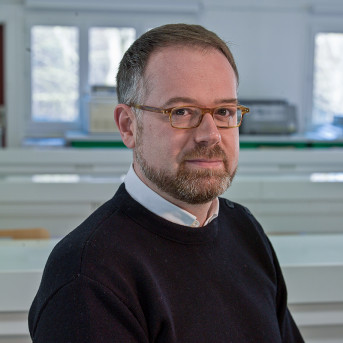
Contacts
Seed Development and QualityEmail : Sebastien.Baud@inrae.fr
